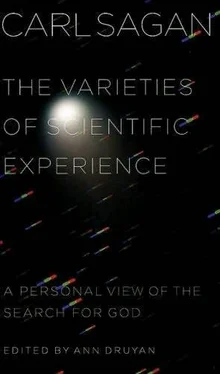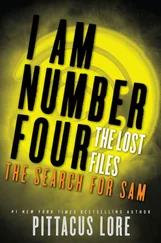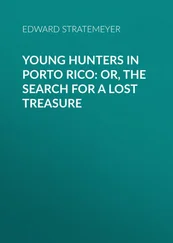The former of these views happens, by chance, to be close to the Judeo-Christian-Islamic view, the latter close to the standard Hindu views. And so, if you like, you can think of the varying contentions of these two major religious views being fought out on the field of contemporary satellite astronomy. Because that's where the answer to this question will very likely be decided. Is there enough matter in the universe to prevent the expansion from continuing forever, so that the self-gravity will make the expansion stop and be followed by a contraction? Or is there not enough matter in the universe to stop the expansion, so everything keeps expanding forever? This is an experimental question. And it is very likely that in our lifetime we will have the answer to it. And I stress that this is very different from the usual theological approach, where there is never an experiment that can be performed to test out any contentious issue. Here there is one. So we don't have to make judgments now. All we have to do is maintain some tolerance for ambiguity until the data are in, which may happen in a decade or less. It is possible that the Hubble Space Telescope, scheduled for launch next summer, will provide the answer to this question. It's not guaranteed but it is possible. [6]
Now, by the way, on this issue of who's older, God or the universe, there's actually a three-by-three matrix: God can have always existed but will not exist for all future time. That is to say God might have no beginning but might have an end. God might have a beginning but no end. God might have no beginning and no end. Likewise for the universe. The universe might be infinitely old, but it will end. The universe might have begun a finite time ago but will go on forever, or it might have always existed and will never end. Those are just the logical possibilities. And it's curious that human myth has some of those possibilities but not others. I think in the West it's quite clear that there is a human or animal life-cycle model that has been imposed on the cosmos. It's a natural thing to think about, but after a while its limitations, I think, become clear.
Also, I should say something about the Second Law of Thermodynamics. An argument that is sometimes used to justify a belief in God is that the Second Law of Thermodynamics says that the universe as a whole runs down; that is, the net amount of order in the universe must decline. Chaos must increase as time goes on; that is, in the entire universe. It doesn't say that in a given locale, such as the Earth, the amount of order can't increase, and clearly it has. Living things are much more complex, have much more order in them, than the raw materials from which life formed some 4,000 million years ago. But this increase in order on the Earth is done, it is easy enough to calculate, at the expense of a decrease in order on the Sun, which is the source of the energy that drives terrestrial biology. It's by no means clear, by the way, that the Second Law of Thermodynamics applies to the universe as a whole, because it is an experimental law, and we don't have experience with the universe as a whole. But it's always struck me as curious that those who wish to apply the Second Law to theological issues do not ask whether God is subject to the Second Law. Because if God were subject to the Second Law of Thermodynamics, then God could have only a finite lifetime. And again, there is an asymmetric use of the principles of physics when theology confronts thermodynamics.
Also, by the way, if there were an uncaused first cause, that by no means says anything about omnipotence or omniscience, or compassion, or even monotheism. And Aristotle, in fact, deduced several dozen first causes in his theology.
The second standard Western argument using reason for God is the so-called argument from design, which we have already talked about, both in its biological context and in the recent astrophysical incarnation called the anthropic principle. It is at best an argument from analogy; that is, that some things were made by humans and now here is something more complex that wasn't made by us, so maybe it was made by an intelligent being smarter than us. Well, maybe, but that is not a compelling argument. I tried to stress earlier the extent to which misunderstandings, failure of the imagination, and especially the lack of awareness of new underlying principles may lead us into error with the argument from design. The extraordinary insights of Charles Darwin on the biological end of the argument of design provide clear warning that there may be principles that we do not yet divine (if I may use that word) underlying apparent order.
There is certainly a lot of order in the universe, but there is also a lot of chaos. The centers of galaxies routinely explode, and if there are inhabited worlds and civilizations there, they are destroyed by the millions, with each explosion of the galactic nucleus or a quasar. That does not sound very much like a god who knows what he, she, or it is doing. It sounds more like an apprentice god in over his head. Maybe they start them out at the centers of galaxies and then after a while, when they get some experience, move them on to more important assignments.
Then there is the moral argument for the existence of God generally attributed to Immanuel Kant, who was very good at showing the deficiencies of some of the other arguments. Kant's argument is very simple. It's just that we are moral beings; therefore God exists. That is, how else would we know to be moral?
Well, first of all you might argue that the premise is dubious. The degree to which humans can be said to be moral beings without the existence of some police force is open at least to debate. But let's put that aside for the moment. Many animals have codes of behavior. Altruism, incest taboos, compassion for the young, you find in all sorts of animals. Nile crocodiles carry their eggs in their mouths for enormous distances to protect the young. They could make an omelette out of it, but they choose not to do so. Why not? Because those crocodiles who enjoy eating the eggs of their young leave no offspring. And after a while all you have is crocodiles who know how to take care of the young. It's very easy to see. And yet we have a sense of thinking of that as being somehow ethical behavior. I'm not against taking care of children; I'm strongly for it. All I'm saying is, it does not follow if we are powerfully motivated to take care of our young or the young of everybody on the planet, that God made us do it. Natural selection can make us do it, and almost surely has. What's more, once humans reach the point of awareness of their surroundings, we can figure things out, and we can see what's good for our own survival as a community or a nation or a species and take steps to ensure our survival. It's not hopelessly beyond our ability. It's not clear to me that this requires the existence of God to explain the limited but definite degree of moral and ethical behavior that is apparent in human society.
Then there is the curious argument, unique to the West, called the "ontological argument," which is generally associated with [St.] Anselm, who died in 1109. His argument can be very simply stated: God is perfect. Existence is an essential attribute of perfection. Therefore, God exists. Got it? I'll say it again. God is perfect. Existence is an essential attribute of perfection. You can't be perfect if you don't exist, Anselm says. Therefore God exists. While this argument has for brief moments captured very significant thinkers (Bertrand Russell describes how it suddenly hit him that Anselm might be right-for about fifteen minutes), this is not considered a successful argument. The twentieth-century logician Ernest Nagel described it as "confounding grammar with logic."
What does it mean, "God is perfect"? You need a separate description of what constitutes perfection. It's not enough to say "perfect" and do not ask what "perfect" means. And how do you know God is perfect? Maybe that's not the god that exists, the perfect one. Maybe it's only imperfect ones that exist. And then why is it that existence is an essential attribute of perfection? Why isn't nonexistence an essential attribute of perfection? We are talking words. In fact, there is the remark that is sometimes made about Buddhism, I think in a kindly light, that their god is so great he doesn't even have to exist. And that is the perfect counterpoise to the ontological argument. In any case, I do not think that the ontological argument is compelling.
Читать дальше










